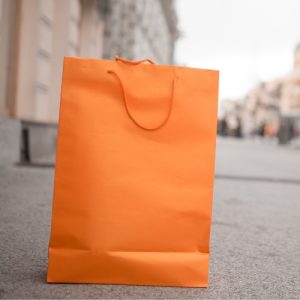Mystery Shopping is the practice of using trained shoppers to anonymously evaluate customer service, operations, employee integrity, merchandising, and product quality.
Mystery shopping goes by many names:
- Secret Shopping
- Mystery Customers
- Spotters
- Anonymous Audits
- Virtual Customers
- Employee Evaluations
- Performance Audits
- Telephone Checks

Why use mystery shopping?
- When location, pricing, and product assortment are no longer unique, service is often the key to success or failure.
- It costs 10x more to get a new customer than to keep an existing one.
- One unhappy customer will tell 5 other people of their bad experience with services
Why customers leave?
- 69% poor customer service
- 13% poor product quality
- 9% competitive reasons
- 5% other
- 3% move away
- 1% die
“What gets measured, gets done”
Mystery Shopping Today
- Wide-ranging impact – with shoppers, clients, and providers
- Many shopper-oriented web sites and List Serv’s exist to assist shoppers with education and finding jobs
- Internet provides more reach and exposure for mystery shopping services
- Faster and less expensive shopper recruiting
- Faster and less expensive data collection
- Faster, automated reporting processes
- Increased need for validation of data
Who provides mystery shopping services?
- Mystery Shopping Specialists
- Marketing Research Firms
- Private Investigators
- Merchandising Companies
- Training Companies
- Advertising/Promotion Agencies
- Others
Who uses mystery shopping?
Any business/organization that needs to monitor its operations, facilities, product delivery, and services like:
- Banks
- Retailers
- Manufacturers
- Call Centres
- E-Commerce services
- Government agencies
- Hospitals
- Associations
- Franchise operations
- Promotions agencies
- Hotels
- Restaurants
- Movie Theatres
- Recreation parks
- Transportation systems
- Fitness/health centres
- Property management firms
- Freight/courier services and many more…
What are the benefits of a mystery shopping program?
- Monitors and measures service performance
- Improves customer retention
- Makes employees aware of what is important in serving customers
- Reinforces positive employee/management actions with incentive-based reward systems
- Provides feedback from front line operations
- Monitors facility conditions – asset protection
- Ensures product/service delivery quality
- Supports promotional programs
- Audits pricing & merchandising compliance
- Allows for competitive analyses
- Compliments marketing research data
- Identifies training needs and sales opportunities
- Educational tool for training & development
- Ensures positive customer relationships on the front line
- Enforces employee integrity
The History of Mystery Shopping
- Initially, mystery shopping was a technique used by private investigators to prevent employee theft – primarily at banks and retail stores
- In the 1940’s, Wilmark coined the term “mystery shopping” and began using the method for evaluating customer service
- In the 1970’s and 80’s, Shop ‘n Check popularized mystery shopping by gaining extensive publicity
- In the 1990’s, fueled by the internet, the mystery shopping industry experienced rapid growth and acceptance.
- Into the 2000’s, the creation of software packages such as SASSIE and Prophet have revolutionized the industry
Mystery Shopping Methods
- In person/on-site shops
- Telephone shops
- E-Commerce web site shops
- Hidden video/audio recording
- Full narrative shops (qualitative)
- Checklist shops (quantitative)
- Purchase & return shops
- Discrimination (matched-pair) testing